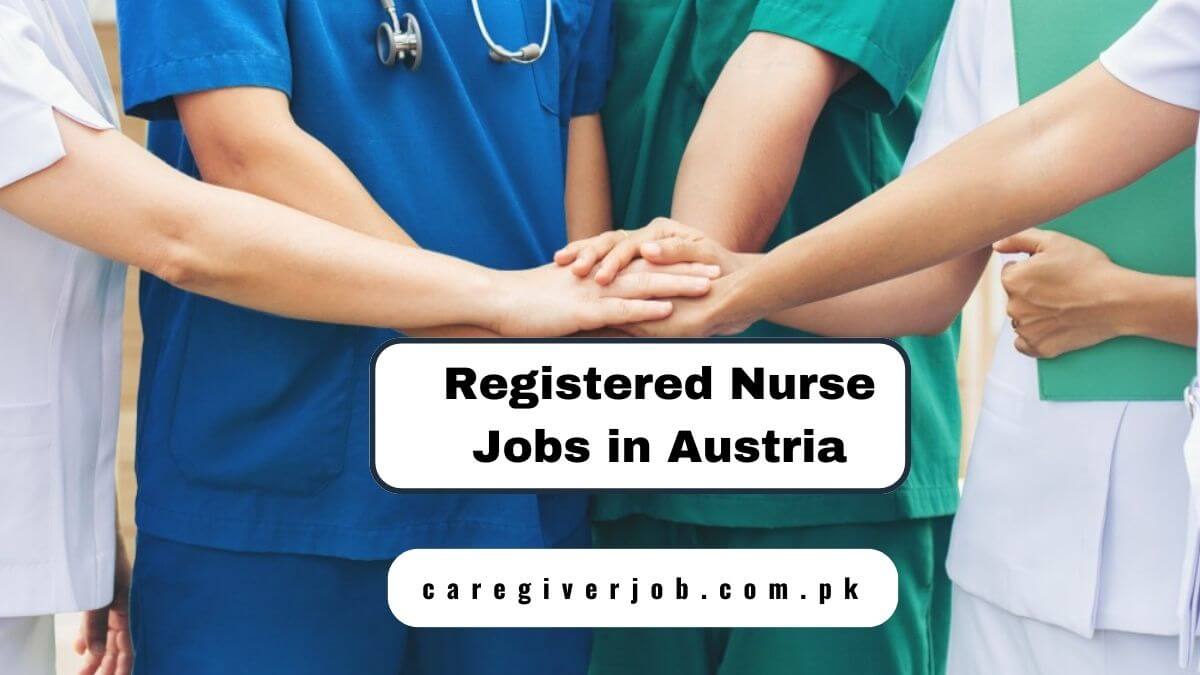Registered Nurse Jobs in Austria 2025 – Paid Visa Fees & Benefits
Registered Nurse Positions in Austria with Paid Visa Fees (£2,000 Golden Hello): Barchester Healthcare is an independent care provider in the United Kingdom that operates over 250 care facilities and seven hospitals in the United Kingdom and other European countries. Barchester Care Home Austria is in need of a Registered Nurse who possesses a comprehensive understanding of the most recent clinical practices and is currently registered with the NMC. She is responsible for the physical, psychological, and social requirements of our residents in order to ensure that we provide the quality of care they deserve. For a comprehensive overview of Registered Nurse Jobs in Austria with Paid Visa Fees (£2000 golden welcome) and a link to apply online, please continue reading.
Key Points:
- Job Title: Registered Nurse
- Job Location: Austria
- Expected Salary: £21.5 per hour.
- Job schedule: 8 hours a day for 6 days a week.
- Knowledge required: Yes
- Experience required: Minimum 2 years of postgraduate experience
- Visa Sponsorship: Yes
- Employee Benefits: Yes
Requirements of Registered Nurse Jobs in Austria:
- A Bachelor’s degree in nursing or a related discipline.
- NMC registration is currently in effect.
- Commencing within six months of the acceptance of the employment offer.
- A minimum of two years of postgraduate experience.
Check Also: Veterinary Nurse Jobs in New Zealand – High Demand Roles
Benefits of Registered Nurse Jobs in Austria:
- High Demand Profession: Austria has a significant demand for healthcare professionals, which guarantees job security and a consistent demand for nurses.
- Competitive Wages: Registered nurses are eligible for shift differentials and bonuses, in addition to earning competitive salaries.
- Visa Sponsorship Opportunities: Numerous healthcare facilities provide visa sponsorship to qualified international nurses.
- perpetual Residency Pathway: Austrian citizenship and perpetual residency may be achieved through long-term employment.
- World-Class Healthcare System: Gain experience in a modern, well-funded healthcare environment that is equipped with state-of-the-art technology and facilities.
- Social Security Benefits: Employees are entitled to comprehensive social insurance, which includes health, pension, unemployment, and accident coverage.
- Austria encourages healthcare personnel: to maintain a healthy work-life balance by providing them with paid holidays, vacation time, and reasonable work hours.
- Free or Subsidized German Language Courses: The government or employers may provide assistance with German language training for foreign nurses.
- Paid Training & Continuing Education: Employer-sponsored opportunities to enhance skills and pursue specialized nursing areas.
- Family-Friendly Policies: Austria offers family reunification options and child care support programs.
- Multicultural Work Environment: Collaborate with healthcare professionals from various countries to form inclusive teams.
- Safe and Clean Living Conditions: Austria is renowned for its exceptional quality of life, safety, and sanitation, making it an ideal location for settling down.
- Public Transport Accessibility: The ease of commuting to hospitals and clinics is facilitated by the reliable and efficient transportation systems.
- Recognition of International Qualifications: Austria has established explicit procedures for the recognition of foreign nursing credentials.
- Gateway to the EU: Employment in Austria offers prospective opportunities and mobility in other European countries.
Description of Registered Nurse Jobs in Austria:
- Assisting physicians and hospital personnel in recognizing the unique requirements of each patient or resident and providing them with person-centered care.
- Assisting the residents in their daily routines, including bathing, medication administration, eating, drinking, and changing clothing.
- Assisting/enabling the residents to maintain their appearance, self-care, and personal hygiene while respecting their dignity.
- Facilitating their participation in physical and social activities.
- Physical therapy or any brief physical activity, such as walking. In the same vein, any other leisure or social activity, such as visiting a park or visiting a close relative’s home in a wheelchair, is also considered.
- Maintaining effective communication with the families of residents.
- Monitoring the health and safety standards of the household.
- Carry out all responsibilities as requested by the management and the nurses.
Salary of Registered Nurses in Austria:
- Average Monthly Salary: €2,500 to €3,500 gross per month
- With Specialization or Experience: €3,800 – €4,500 gross per month
- The hourly rate ranges from approximately €15 to €25, contingent upon the sector, experience, and location.
- Private vs. Public Sector: Nurses employed in private hospitals or specialized clinics may receive a marginally higher salary.
- Additional compensation is provided for weekend, night, and holiday duties.
How to Apply for Registered Nurse Jobs in Austria?
Visit the official Barchester website provided below, complete the registration process, and submit your application.
Conclusion:
Austria presents a promising opportunity for Registered Nurses, particularly those who are interested in working in a highly respected European healthcare system and are pursuing visa sponsorship. The following is a concise summary that emphasizes the primary advantages and key points:
Frequently Asked Questions:
Can I work as a nurse in Austria?
You need German language level B1 or B2 to work in Austria as a nursing assistant level 2 or registered nurse. The focus of the nostrification programme is therefore on developing your language and cultural skills. The program starts at a university in your home country.
How much qualification is required for nursing?
Matric in Science with 55 % marks in aggregate as well as 55% marks in science subjects (Physics, Chemistry and Biology).
What is RN skill?
Several medical skills nurses must develop include patient care best practices, treatment planning, advanced cardiac life support, CPR, telemetry, case management, pediatric care techniques, and application of medical terminology.







